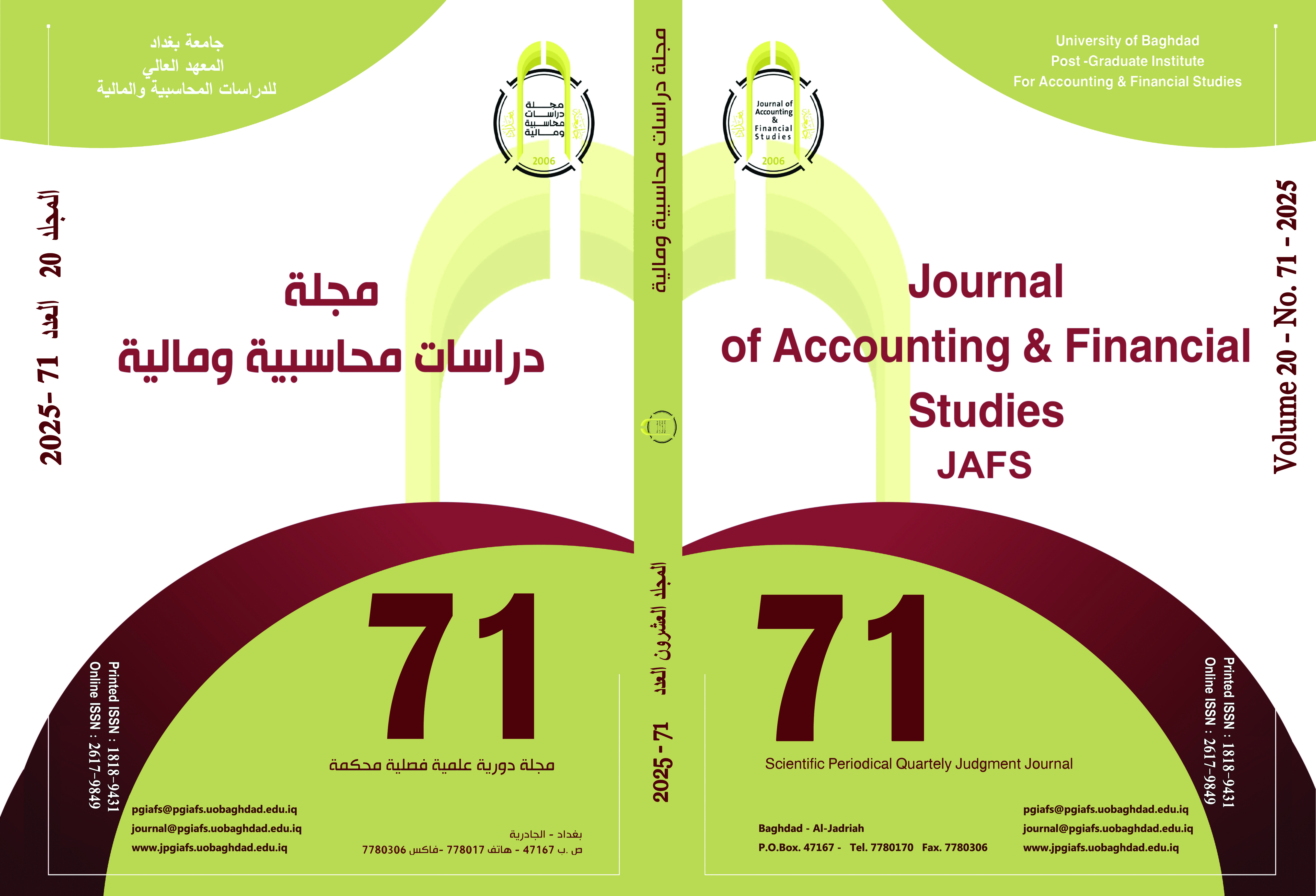An econometric study of some macroeconomic indicators on inflation in Iraq for the period (2004 - 2023)
DOI:
https://doi.org/10.34093/22pp8v50Keywords:
Macroeconomics, Inflation, Implicit deflator of GDP, IraqAbstract
The study aimed to identify some of the macroeconomic indicators that affect inflation in the Iraqi economy .The impact of exports ,economic growth ,public expenditures ,cash reserves ,and oil revenues on inflation was measured and analyzed through its index (GDP deflator)in Iraq during the period(2004-2023) Using two analytical and analogical approaches the data was converted from year to electronic to expand the size of the eye ,and rely on research forms according to the following tests :The stability of the time series was tested through the two tests (Ng-Perron 2001)and (Park 2003),to reveal the degree of integration and to avoid spurious regression before estimation .Through the co-integration test using the ARDL methodology ,the researchers concluded that there is a long-term relationship between the variables of the study and this was confirmed by the Bounds Test .The results resulted in testing the long-term inverse and significant relationship between exports and government spending with inflation, which is contrary to the meaning of economic theory .This inverse relationship highlights the importance of fiscal and monetary policies due to lack of control in managing inflation levels, which is a natural issue as a result of the increase in public spending in the crises that Iraq went through during the research period(2004-2023).As for cash reserves and oil revenues ,there is a direct and significant relationship with inflation As for economic growth with inflation ,the relationship is insignificant, meaning that the results indicate an increase in the gross domestic product, which could increase monetary inflation in Iraq in the event that the general rise in prices is not controlled, then it is possible to resort to austerity through fiscal policy by reducing public expenditures and controlling Inflation in Iraq The study also proved, after taking the error correction model (ECM), that there is a short-term relationship because the error correction coefficient{*COINTEQ} with one lag period (L1) has a negative and significant sign. It was also confirmed that the model is free of the problem of autocorrelation of errors and stability of variance by using LM and ARCH diagnostic tests.
Downloads
Published
Issue
Section
License
The copyright is transferred to the journal when the researcher is notified of the acceptance of his research submitted for publication in the journal.



